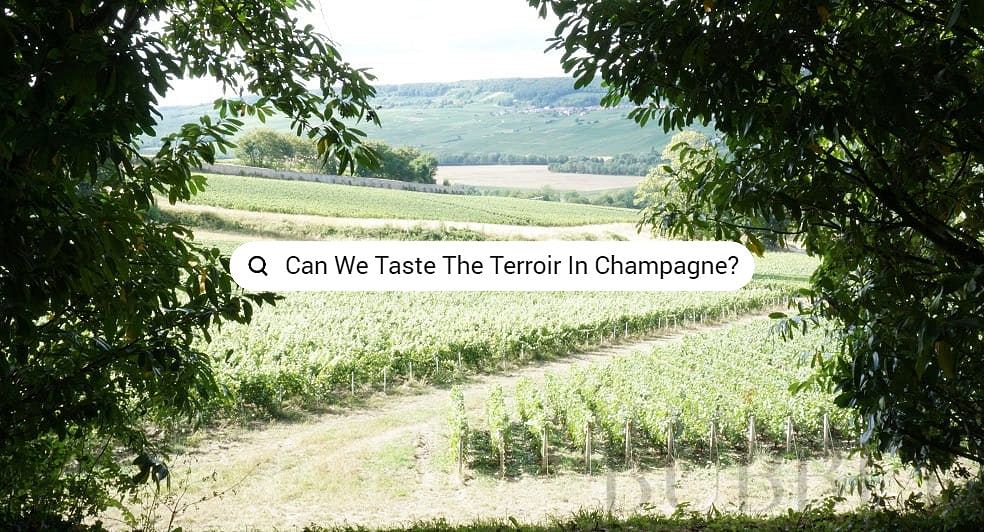
A mystical belief about Champagne, as with wines in general, is the idea one can taste the terroir in a wine. A first issue then is of course what is the meaning of the concept “terroir”. The problem is then that by trying to define this concept, the describing words each have again their own purport. So finally any definition is a brutally ended demarcation, without further explanation. So if we are honest, by defining something we only rephrase words into other words, by which we hope things will be fully and indisputably clear. Which is of course nonsense. But it’s the way we communicate. Otherwise our life would result in a never-ending word-game.
Words can only ever be pointers to the truth.
(Dennis Waite)
So going back to the idea of terroir, we could specify terroir as a set of flavor-characteristics of a wine which are related to the physical place of origin. Or to be more specific, it is the sensory experience which one could pin-down to the geographical circumstances in which the grapes have grown, including the man-created aspects around this biological growth process. These geographical circumstances consist of characteristics like the soil, the climate (e.g. sun, rain and temperature) and the topographics of the vineyard. These circumstances are thought to be unique in themselves causing a typical sensory expression in the wine made from it.
But can indeed the characteristics of the circumstances in which the grapes grow be a true expression of the terroir itself? Are environmental factors expressed in the flavor of a wine to such a degree that it is unique and not possible to create elsewhere? There is of course no doubt that the circumstances affect the growth of the grapes, of which water supply is the most relevant. But the question remains then: does the terroir itself shape the inherent characteristic of the grape. So if we have a Crémant de Bourgogne Chardonnay and compare it to a Kaapse Vonkel MCC Chardonnay form Stellenbosch, is the terroir a fundamental differentiator and is it also to be tasted as unique expression?
There’s no such thing as good Champagne or bad Champagne.
There’s just Champagne and your attitude towards it.
(Free to Louise Hay)
Historically people believed that the minerals in the vineyard could be tasted in the glass, which was the proof of the concept of terroir. Yet science has demonstrated that whatever we taste, it is not dissolved minerals which have passed from the soil into the wine. It’s physically impossible. But then what is the physical connection between the terroir and the grape which could give the unique expression?
So as long as we cannot make an unambiguous link between the soil and the specific flavor expression we call terroir, it stays a somewhat amorphous concept. But if we put it in another way, we can say that terroir is the flavor-expression found in wine, which is the result of chemical and microbiological processes that are typical for a specific geographical location. Besides the type of grape, it is the typical native local flora and fauna elements – like yeasts and moulds – which are part of those processes. These processes have effects on the final composition of the grape, the vinification process, as well as on the aging of the wine. As such there are aspects which lie at the root of the creation of flavor.
Love is the answer but, while you are waiting for the answer,
Champagne raises some pretty good questions.
(Free to Woody Allen)
When we look at it in this way the concept of terroir isn’t even limited to Champagne or wine. It is also applicable for cheese for example. We could even say then that our gardens have their own terroir, which of course strongly demystifies the concept and makes it almost a Gallic myth. But as we can’t deny that biology, chemistry and agricultural and ecological practices as such can create wines with a strong sense of place, while others may conceal their locality, there can be spoken of terroir in that sense. At the same time it accounts for the fact that terroir is not guaranteed. So it truly can be an indicator of how the grapes were grown and how the fermentation developed. But the only true way to experience this is to drink it.
Good vibes!
Corné van Nijhuis
World’s first self-declared Vinosopher
Leave a Reply